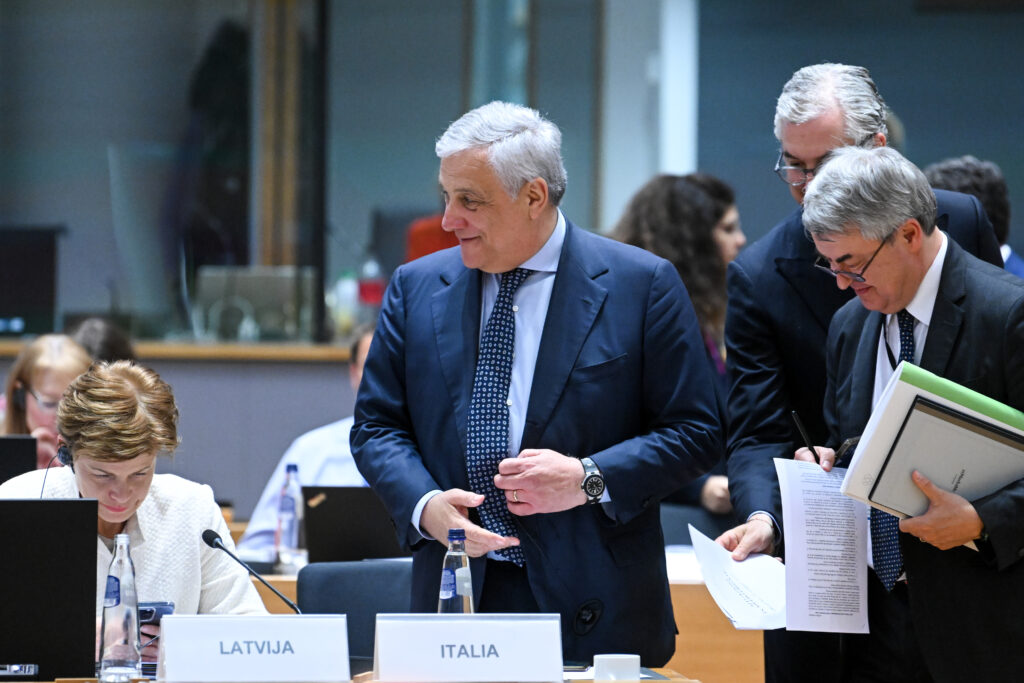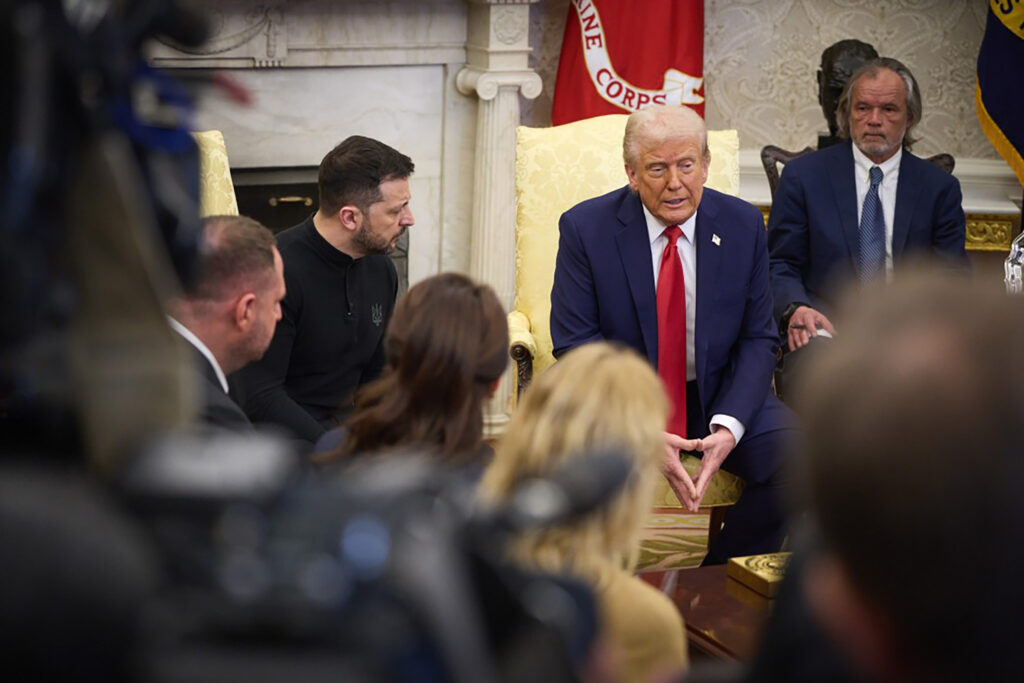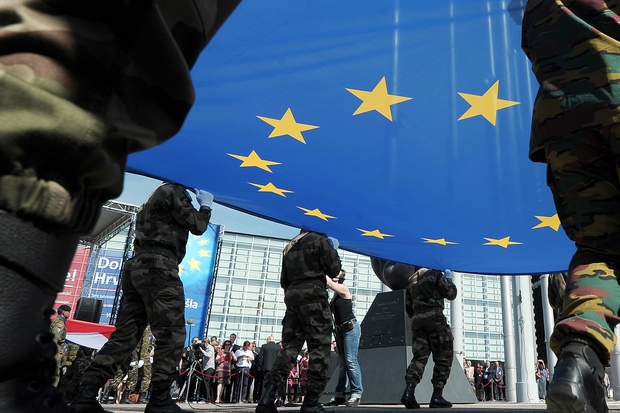Brussels – The so-called “Kallas plan” to support the attacked Ukraine doesn’t entirely convince. Turning their noses up at it are mainly Italy and France, albeit for different reasons. From the European capital, Antonio Tajani brings the perplexities of the government in Rome: the High Representative’s proposal is still too vague, and Italy will already have to invest ample resources in its own defence in the short term, so one must tread lightly before announcing new disbursements at the EU level.
Kallas’ proposal
The initiative put on the table last week by the twelve-star diplomacy chief, Kaja Kallas, speaks of an ad hoc fund for Ukraine to be used for anti-aircraft defence systems, missiles, drones, fighter jets, and artillery ammunition, but also training for Kyiv troops and the contribution of member states to security guarantees for the former Soviet republic.
According to the former Estonian premier, there is “broad political support” among EU chancelleries for her proposal. Speaking to reporters at a very brief press conference at the end of the Foreign Affairs Council held this morning (March 17) in Brussels, the High Representative admitted that “there is still work to be done” to finalise the legal text of the initiative, but reiterated that around the table there is an understanding of the need to maintain and potentially increase support for the attacked country. Particularly in the far-from-remote eventuality that U.S. aid should fail. The topic will be taken up by the heads of state and government of the Twenty-Seven, who will meet for a new summit on March 20 and 21, but not even from there is a final decision to be expected.

As usual, however, the crux is on funding: how many resources to put in, and who will put them in? Theoretically, the plan envisions the possibility of contributing “in kind,” that is, not only with monetary transfers but also through the direct shipment of military equipment. Speaking of money, the draft document refers to a range of 20 to 40 billion euros, depending on the needs of the Ukrainians. A portion, just under two billion, is expected to come from the Commission.
The rest would be the responsibility of the member states, which would have to contribute a quota proportional to their economic weight, most likely calculated on the basis of gross national income. Participation would have to be voluntary—a way to defuse potential vetoes, for example, from Budapest or Bratislava—and could also be open to third countries outside the EU.
The objections of Italy and France
Depending on estimates (and the final size of the instrument), Italy may have to pay a sum of around 4 or 5 billion. Reason why, in Rome, Kallas’ initiative was received cooly. Foreign Minister Antonio Tajani is stalling: “It seems to me that there are still a lot of questions from many countries,” said the deputy prime minister on the sidelines of the Council. “This is a proposal that needs to be well explained in detail, which needs to be analyzed and delved into,” he added.
France also has reservations about the initiative but for different reasons. Paris is already working hard to put in place (together with London) a coalition of the willing to monitor a possible ceasefire in Ukraine once a ceasefire is in place. It is precisely from the Elysée opposition that the watering down of Kallas’ original, more ambitious proposal and the inclusion of the possibility of contributing by sending arms and other equipment would have been derived.

For the head of the Foreign Ministry, Italy’s commitment alongside Kyiv remains firm, but “we need to assess well what the costs will be because we will have to invest a lot of resources” also to reach the GDP 2 per cent target in defence spending decided at NATO (a target that will probably be revised upward in the coming months) as well as for the European Armament Plan targetted by Ursula von der Leyen. “We have already launched 11 aid packages for Ukraine, and we have already given all we can give,” certifies the blue leader, as if to say that the purse strings may soon close, at least as far as supporting Kyiv’s resistance is concerned.
Military missions (and transatlantic unity)
As for sending troops on the ground, Tajani confirms the Italian government’s line. At a video conference organised by his British counterpart Keir Starmer last Saturday (March 15), Prime Minister Giorgia Meloni distanced herself from a possible military force in Ukraine. No military will be sent from Rome: not within the EU, not within NATO, and not even at the level of any coalition of the willing. If anything, the foreign minister argues, it could be discussed in the framework of a mission under the UN cap. But that would have to be approved by the Security Council, where Russia and China hold veto power.
Eventually, the deputy prime minister observes, echoing the concept expressed by Meloni last week, one can think of “a kind of Article 5.2” for Kyiv (the reference is to Article 5 of the Atlantic Charter, which enshrines the principle of collective defence among members of the Alliance) that would guarantee “an international commitment to the protection of Ukraine.” Provided that, given Washington’s opposition, it is essentially impossible for the former Soviet republic to join NATO in the immediate future.
 U.S. President Donald Trump (right) welcomes his Ukrainian counterpart Volodymyr Zelensky (photo via Imagoeconomica) in the Oval Office (photo via Imagoeconomica)[/caption
U.S. President Donald Trump (right) welcomes his Ukrainian counterpart Volodymyr Zelensky (photo via Imagoeconomica) in the Oval Office (photo via Imagoeconomica)[/caption
#
At any rate, the minister argues, it is premature to speculate on peacekeeping forces while bombs are still falling: “First, we must achieve peace, and before that, a ceasefire,” he notes, recalling that the Russian president has not yet responded to the proposed ceasefire agreed to by Ukraine and the United States in Jeddah last week. And therefore, “decisions should not be made before we know what will happen” on the ground and around the negotiating table because things can change quickly. Better to wait to know the outcome of the phone call between Donald Trump and Vladimir Putin, scheduled for tomorrow.
“The important thing,” he stressed, “is for Europe to be united and, above all, not to break the transatlantic unity between Europe and the United States” because the latter “is not an enemy but our main, historical ally.” “Our goal is always to keep the West united because if the West divides, it weakens, autocracies are strengthened,” he concluded.
English version by the Translation Service of Withub







